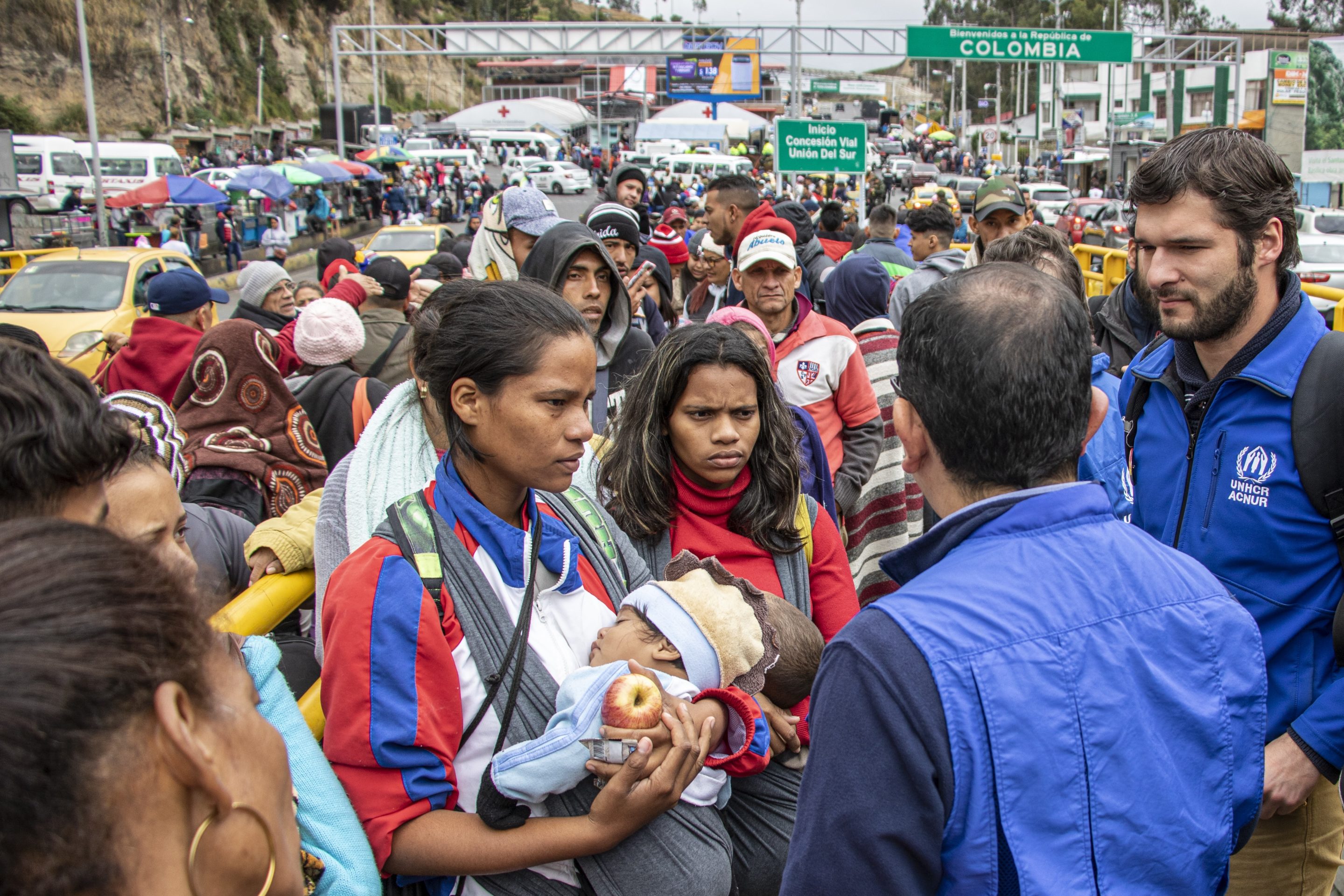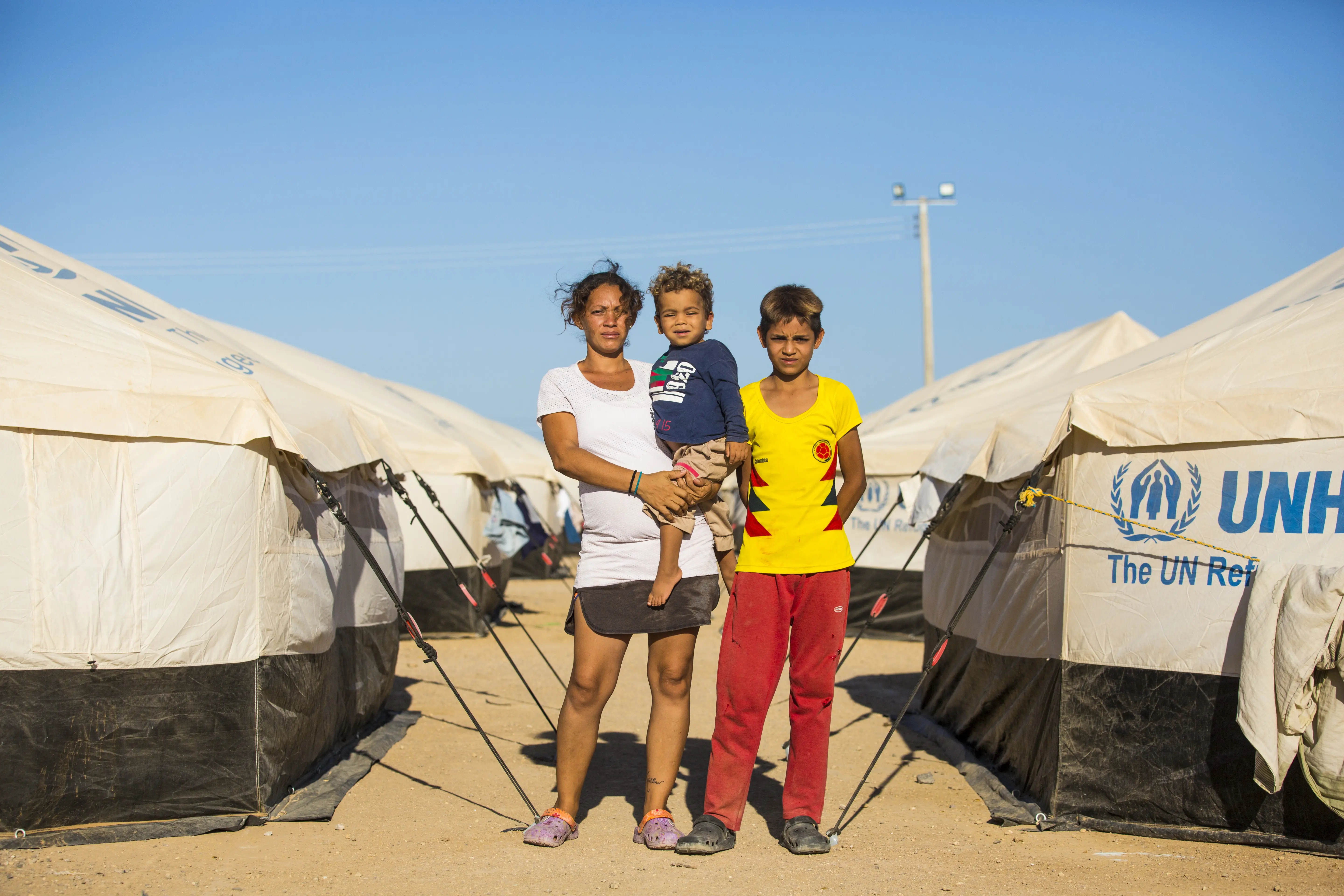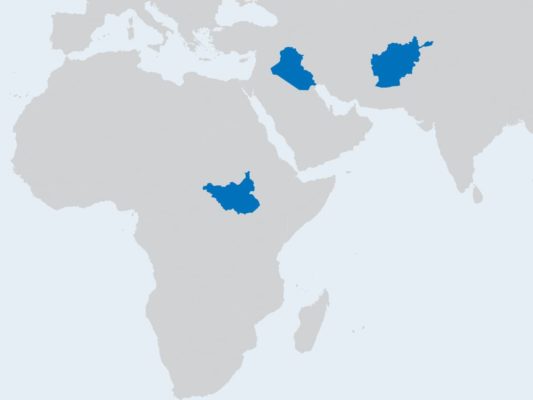
UNHCR staff at the Rumichaca International Bridge provide information, legal assistance, water and aid items to Venezuelan refugees and migrants. ©UNHCR/Jaime Giménez Sanchez de la Blanca
Traditionally, Venezuela has been a generous host to thousands of refugees. But with escalating economic instability, violence and a lack of access to food, medicine and jobs, Venezuelan families themselves have been forced to flee their country. By the end of 2019, there were more than 4.7 million Venezuelan migrants, refugees and asylum seekers.
Fleeing political instability, conflict and the cost of living inflating to higher than most can afford, Venezuelans have fled to other countries seeking safety. Almost 80 per cent of Venezuelan refugees are staying in Latin American and Caribbean countries, with no idea of when they will be able to return home.
A call for solidarity: How UNHCR and other countries are helping Venezuelans
In October, UNHCR called for a solidarity conference in support of Venezuelans who have had to flee. Calling for urgent action, UNHCR partnered with the International Organization for Migration and the European Union to hold a high-level international solidarity conference.
It successfully raised global awareness about and proposed practices for the international community to help Venezuelans.
Approximately 500 Venezuelans cross into Brazil every day seeking safety, and Brazil estimates that more than 224,000 Venezuelans are currently living in their country. In a show of solidarity in early December 2019, Brazil announced that they would recognize Venezuelan asylum-seekers as refugees through an accelerated procedure, without the need for an interview. This decision will help more than 21,000 Venezuelan refugees living in Brazil access humanitarian response and help.

Karen and her sons Jesus and Christian in a Colombian refugee camp. ©UNHCR/Vincent Tremeau
Colombia has also stepped up to help Venezuelan refugees. Colombia’s private sector has welcomed Venezuelan refugees with open arms, hiring them to work in their businesses and organizations.
After arriving in Colombia last year, Karen lived on the streets for seven months with her sons Jesus and Christian.While there, Karen met UNHCR staff who were assessing the needs of vulnerable Venezuelan refugees. “They asked me where we slept, what we ate and what our health needs were,” Karen says.
In collaboration with countries like Brazil and Colombia, UNHCR will continue to help Venezuelan refugees through a coordinated approach that will help more than four million people across many countries. By providing emergency shelter, improving reception conditions, supporting govern-ment registration, and providing protection to Venezuelans, UNHCR stands ready to help Venezuelan refugees and migrants. In November, UNHCR launched a $1.7 billion plan with the International Organization for Migration to respond to the humanitarian needs for Venezuelans.



